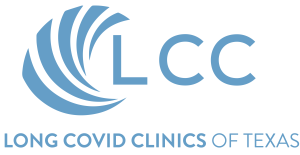In recent years, the global health landscape has been significantly reshaped by the emergence of COVID-19 and its subsequent variants. Among the various challenges posed by this pandemic, one of the most perplexing and increasingly prevalent issues is ‘Long Covid‘. This condition, characterized by lingering symptoms long after the acute phase of the infection has subsided, is becoming a matter of great concern for individuals, healthcare professionals, and researchers alike. This comprehensive article delves deep into the science behind Long Covid, unraveling its complex mechanisms, varied manifestations, and the broader implications it holds for public health and individual well-being.
What is Long Covid?
Long Covid, also known as Post-Acute Sequelae of SARS-CoV-2 infection (PASC), is not just a singular condition but a spectrum of symptoms and health complications that persist for weeks to months after the initial COVID-19 infection. It represents a multifaceted medical enigma that intertwines virology, immunology, and systemic health issues. Our exploration begins with an overview of the defining characteristics of Long Covid, including the most common symptoms like fatigue, brain fog, and dyspnea, and how they contrast with the acute symptoms of COVID-19.
Delving Into the Fluctuating Symptoms of Long Covid
Long Covid presents a baffling array of symptoms that can change without warning. Patients report a diverse range of persistent symptoms, including fatigue, breathlessness, and neurological issues like “brain fog.” Dr. Jane Smith, a leading researcher in post-viral syndromes, explains, “Long Covid’s symptom fluctuation is unlike anything we’ve seen. It challenges our understanding of post-viral conditions and pushes us to think outside the box in treatment.” This variability signifies the complex nature of Long Covid and the need for personalized approaches to care.
Government’s Role in Advancing Long Covid Research
The U.S. government’s commitment of $750 million towards Long Covid research and treatment marks a significant milestone. This investment opens new avenues for comprehensive studies. Dr. Robert Lee, a public health expert, notes, “This funding is a testament to the severity of Long Covid. It allows for deeper investigation into its mechanisms and potential treatments.” Such support is crucial in developing effective strategies to combat this condition.
NIH’s Pioneering Trials for Long Covid Treatments
The National Institutes of Health (NIH) is at the forefront of exploring treatments for Long Covid. Their first trials focus on assessing the safety and efficacy of new therapies. Dr. Emily Garcia, an NIH researcher, shares, “These trials are critical in finding reliable treatments. We’re exploring various avenues to provide relief to those suffering.” These trials represent hope and progress in our fight against Long Covid.
Innovative Treatments: Focus on Leronlimab
Among the new treatments under investigation is the monoclonal antibody leronlimab. Preliminary studies suggest it might help reduce symptoms of Long Covid. Dr. Alan Richards, an immunologist, states, “Leronlimab’s potential in modulating the immune response could be a key in managing Long Covid symptoms.” This research highlights the ongoing efforts to find effective treatments.
Addressing ‘Brain Fog’ with New Drugs
The cognitive symptoms of Long Covid, often referred to as ‘brain fog,’ significantly impact patients’ quality of life. Researchers are exploring the use of drugs like guanfacine and NAC to treat these symptoms. Dr. Sarah Khan, a neurologist specializing in post-viral syndromes, says, “These drugs offer a ray of hope for those struggling with cognitive aftereffects of Covid. Our preliminary findings are promising.” This research is particularly crucial for those whose daily functioning is impaired by cognitive challenges.
Personalized Medicine: The Future of Long Covid Treatment
Understanding that Long Covid affects each individual differently is pivotal in developing effective treatments. The shift towards personalized medicine is gaining momentum. Dr. Mark Davidson, a specialist in personalized healthcare, remarks, “Long Covid treatment requires a tailored approach. We’re learning that what works for one patient may not work for another.” This approach is crucial for providing the best care for Long Covid patients.
For residents of Allen, Dallas, McKinney, and Frisco, Texas, grappling with Long Covid, there’s growing hope and continuous advancement in treatment options. We at Long Covid Clinics are dedicated to providing the latest treatments and support. We encourage you to reach out and join us in navigating this challenging condition. Your health is our priority, and we’re committed to helping you on your journey to recovery.







